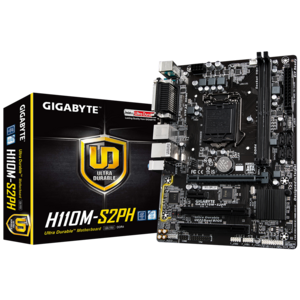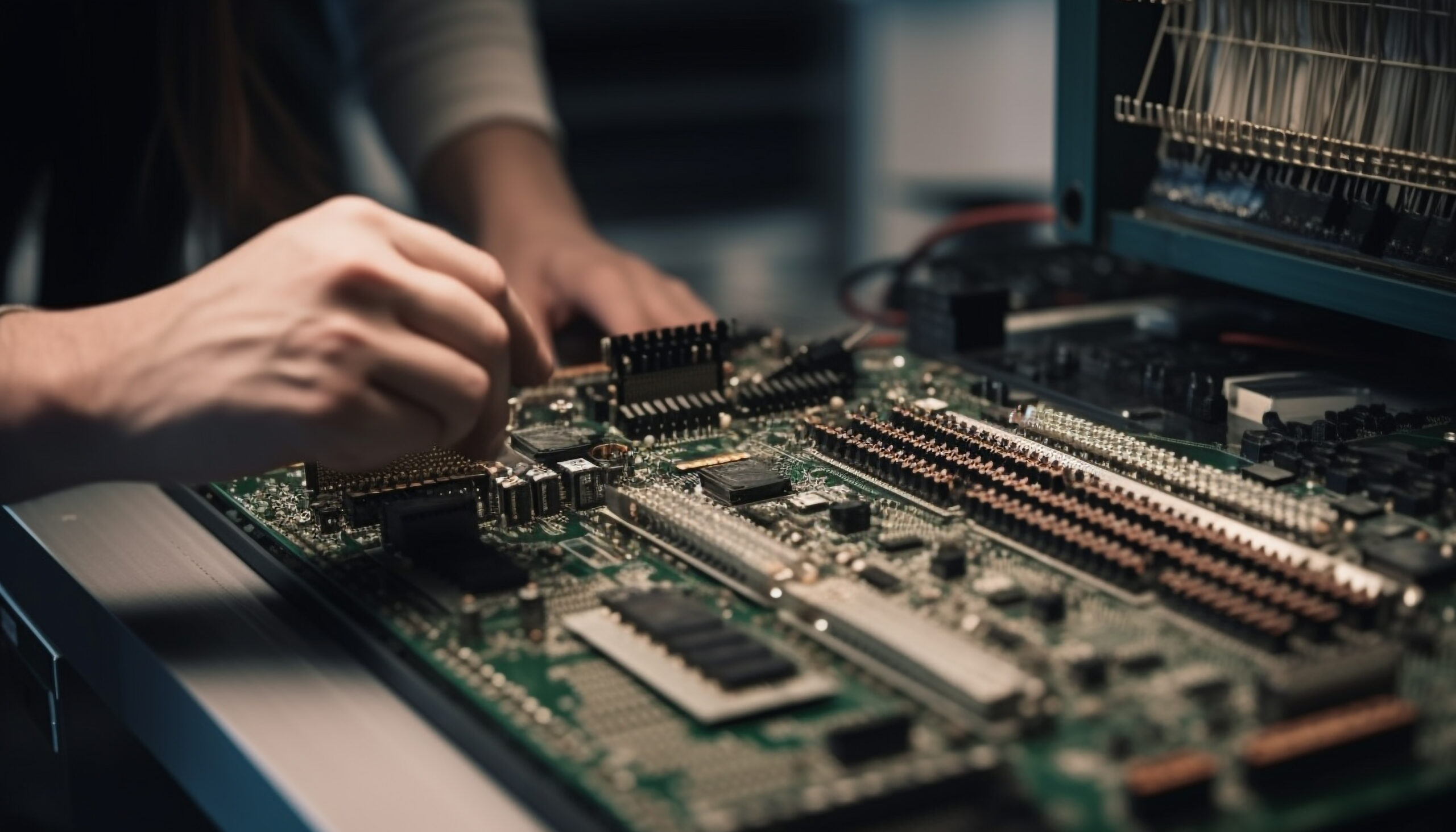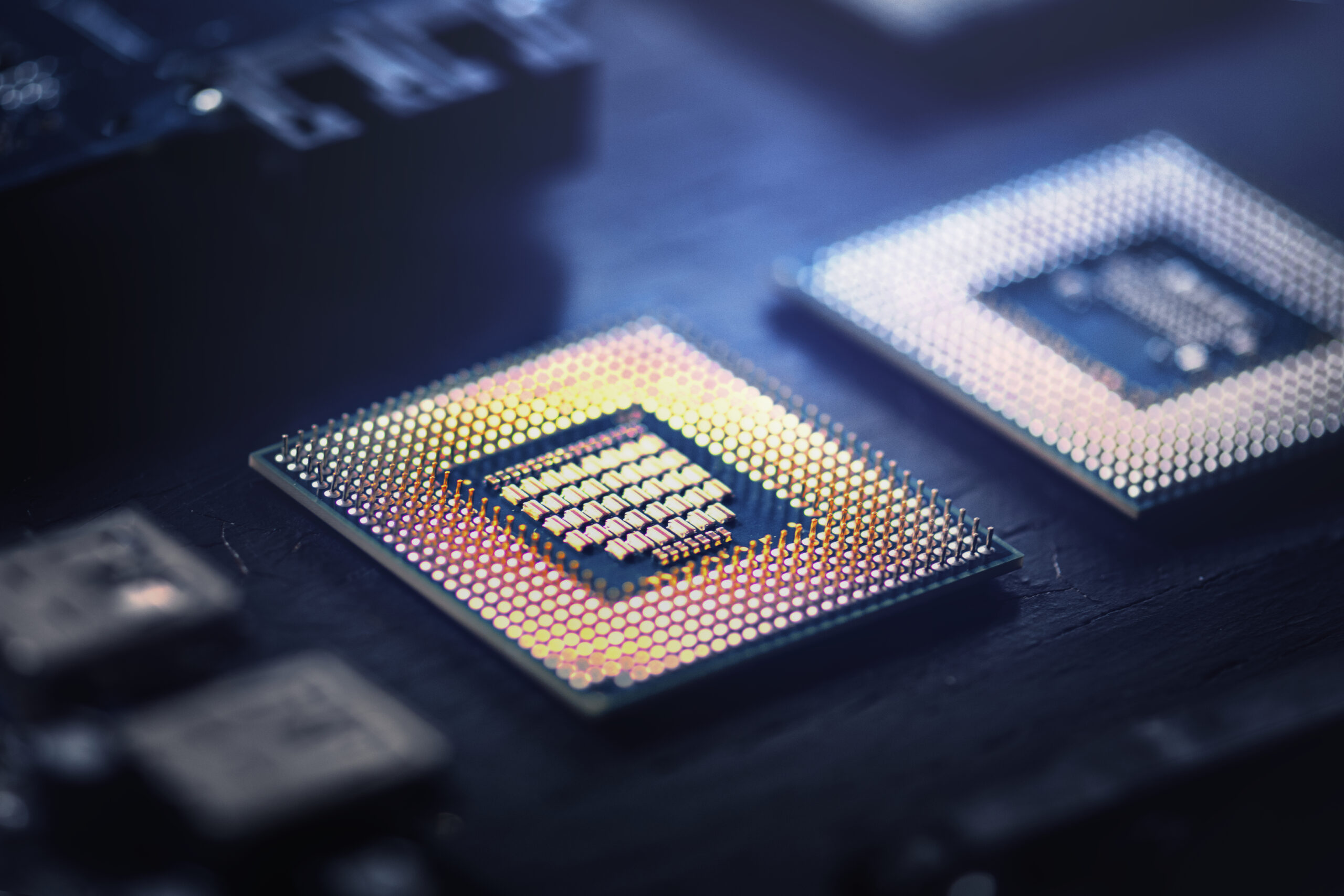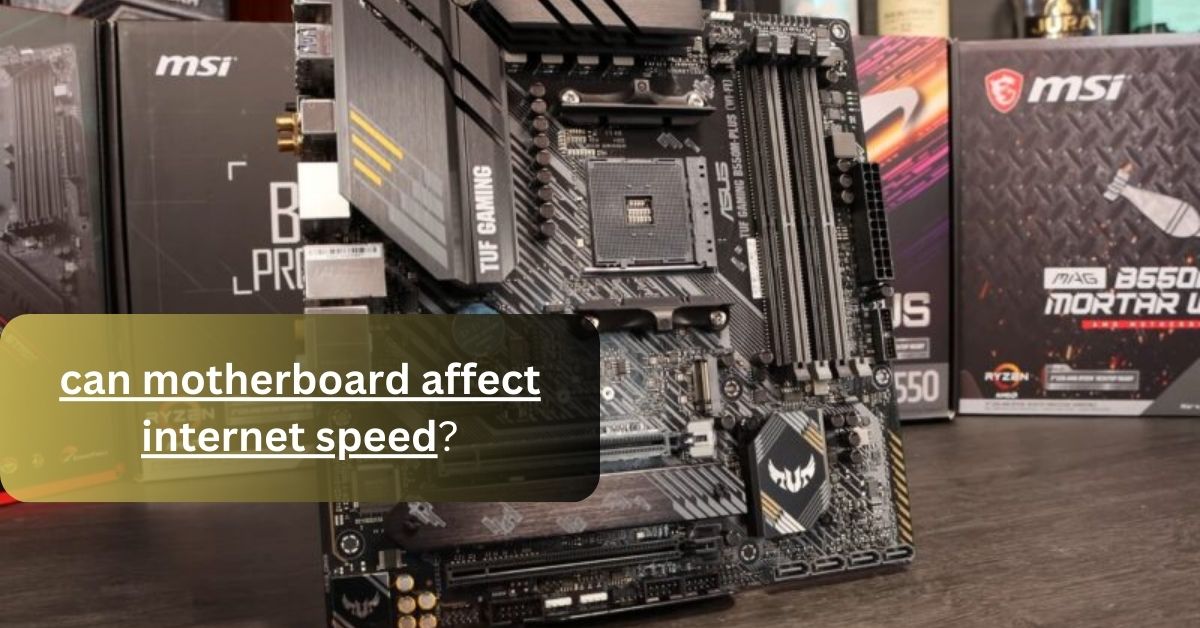If you’ve ever thought that all motherboards are the same and that they don’t really impact your computer’s performance, think again. When it comes to building a powerful gaming rig or a workstation that can handle heavy tasks, the motherboard plays a crucial role. And if you’re eyeing the LGA 1151 socket for your next build, you’re in for a treat. In this blog, we’re going to debunk the myth that all motherboards are created equal and delve into the seven essential features that make LGA 1151 motherboards stand out from the crowd.
Understanding LGA 1151 Motherboard
Before we dive into the nitty-gritty of LGA 1151 motherboard, let’s get a basic understanding of what they are and why they matter. The term “LGA 1151” refers to the socket type used for Intel processors, particularly those in the Skylake, Kaby Lake, Coffee Lake, and Comet Lake generations. Unlike older sockets like LGA 1150 or LGA 1155, LGA 1151 offers better compatibility with newer CPU models and improved performance capabilities.
Now, you might wonder, why should you care about the motherboard socket? Well, the socket determines which CPUs are compatible with your motherboard. So, if you’re planning to upgrade your processor in the future or build a new system with the latest Intel chips, choosing an LGA 1151 motherboard is a smart move.
But LGA 1151 motherboard are not just about compatibility; they also come with a range of features and capabilities that can significantly impact your PC’s performance. From overclocking support to advanced connectivity options, these motherboards are designed to meet the demands of modern computing tasks, whether you’re a hardcore gamer, a content creator, or a professional multitasker.
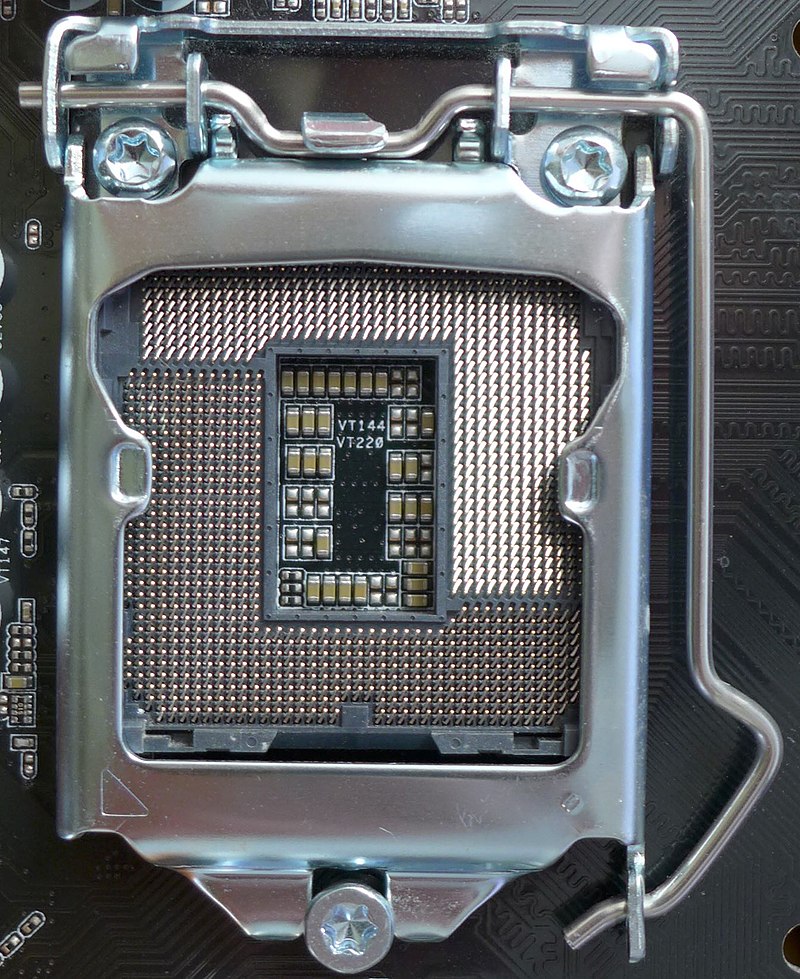
Source: upload.wikimedia.org
Key Features to Look For
You might have heard that all motherboards are pretty much the same, with just minor differences in design or branding. But when it comes to LGA 1151 motherboards, that couldn’t be further from the truth. These motherboards come packed with features that can make a world of difference in your computing experience. Let’s explore seven key features that you should keep an eye out for when shopping for an LGA 1151 motherboard.
Compatibility with Intel 11th Gen Processors
One of the most significant advantages of LGA 1151 motherboards is their compatibility with Intel’s latest 11th generation processors. With support for these high-performance CPUs, you can future-proof your system and enjoy improved speed and efficiency in your tasks, whether you’re gaming, streaming, or running intensive applications.
Robust Chipset for Optimal Performance
The chipset is the backbone of your motherboard, dictating its capabilities and performance. When choosing an LGA 1151 motherboard, opt for models equipped with a robust chipset that can handle your computing needs with ease. Look for chipsets like the Intel Z490 or B560, known for their stability and overclocking potential.
Expansion Slots and Connectivity Options
Whether you’re adding a graphics card, a sound card, or extra storage drives, having ample expansion slots is crucial for customization and future upgrades. LGA 1151 motherboards typically offer a variety of PCIe slots, SATA ports, and USB connectors to accommodate your expansion needs. Make sure to choose a motherboard with enough slots and ports to support your desired configuration.
Overclocking Capabilities and VRM Cooling
For enthusiasts looking to squeeze every last drop of performance from their system, overclocking is a must. LGA 1151 motherboards with robust VRM (Voltage Regulator Module) cooling solutions and overclocking features allow you to push your CPU to its limits while maintaining stability and reliability.
Memory Support and RAM Slots
RAM (Random Access Memory) plays a crucial role in multitasking and overall system performance. When selecting an LGA 1151 motherboard, consider its memory support and the number of RAM slots available. Opt for models that support high-speed DDR4 memory and offer enough slots for your desired amount of RAM.
Integrated Wi-Fi, Bluetooth, and LAN Capabilities
In today’s interconnected world, seamless connectivity is essential. Look for LGA 1151 motherboards equipped with integrated Wi-Fi, Bluetooth, and LAN capabilities, allowing you to stay connected to the internet and peripherals without the need for additional adapters or cards.
Aesthetics and RGB Lighting Options
Last but not least, don’t overlook the importance of aesthetics when choosing an LGA 1151 motherboard. Many models come with sleek designs and customizable RGB lighting options, allowing you to personalize your build and make it stand out from the crowd.
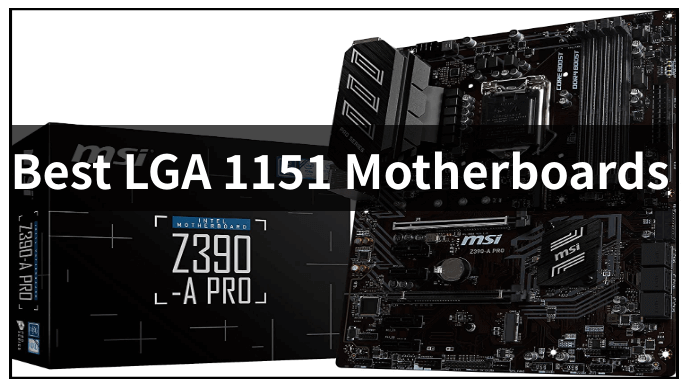
Source: electronicshub.org
Choosing the Right LGA 1151 Motherboard
There’s a common misconception that choosing a motherboard is a simple task – just pick one that fits your CPU socket and budget, right? Well, not quite. When it comes to LGA 1151 motherboards, there’s a wide range of options available, each with its own set of features and capabilities. To help you navigate this sea of choices and find the perfect motherboard for your needs, let’s dive into some expert tips for selecting the right LGA 1151 motherboard.
Determine Your Budget and Needs
Before you start browsing for LGA 1151 motherboards, take some time to assess your budget and computing requirements. Are you building a budget-friendly gaming rig or a high-end workstation? Knowing your budget and needs will help narrow down your options and ensure you find a motherboard that strikes the right balance between performance and affordability.
Consider Form Factor and Compatibility
LGA 1151 motherboards come in various form factors, including ATX, micro ATX, and mini ITX. Consider the size of your PC case and your desired build aesthetics when choosing a form factor. Additionally, ensure compatibility with other components such as your CPU, RAM, and GPU to avoid any compatibility issues down the line.
Evaluate Expansion and Connectivity Options
Next, consider the expansion and connectivity options offered by the motherboard. Do you need multiple PCIe slots for graphics cards or expansion cards? How many USB ports and SATA connectors do you require? Evaluate your expansion and connectivity needs and choose a motherboard that offers ample options to accommodate your desired configuration.
Research Brand Reputation and Customer Reviews
When it comes to motherboards, brand reputation matters. Research reputable motherboard manufacturers known for their quality, reliability, and customer support. Read customer reviews and testimonials to gauge user satisfaction and identify any potential issues or drawbacks with specific models.
Look for Future-Proof Features
To future-proof your PC build, look for LGA 1151 motherboards with features that support future upgrades and advancements. Consider factors such as CPU socket compatibility, BIOS update support, and PCIe slot configurations to ensure compatibility with upcoming hardware releases.
Compare Prices and Features
Once you’ve narrowed down your options based on budget, compatibility, and features, take the time to compare prices and features across different models. Don’t automatically opt for the cheapest option; instead, weigh the features and benefits offered by each motherboard against its price to determine the best value for your money.
Seek Expert Advice if Needed
If you’re unsure about which LGA 1151 motherboard to choose or need assistance with your build, don’t hesitate to seek expert advice. Reach out to online communities, forums, or tech support channels for guidance and recommendations from experienced builders and enthusiasts.
Verdict: Choosing the Best LGA 1151 Motherboard
Selecting the right LGA 1151 motherboard is a crucial step in building a reliable and high-performance PC. By considering factors such as budget, compatibility, features, and future-proofing options, you can narrow down your choices and find the perfect motherboard for your needs. Whether you prioritize gaming prowess, content creation capabilities, or multitasking performance, there’s an LGA 1151 motherboard out there to suit your requirements. Happy building!
Frequently Asked Questions (FAQs)
Q: Are all LGA 1151 motherboards the same? A: Not at all! While LGA 1151 is a specific socket type for Intel processors, motherboards within this category can vary significantly in terms of features, performance, and compatibility.
Q: What does “LGA” stand for in LGA 1151 motherboard? A: LGA stands for “Land Grid Array,” which refers to the way the processor is connected to the motherboard using a grid of pins on the socket.
Q: Can I use an LGA 1151 motherboard with an AMD processor? A: No, LGA 1151 motherboards are specifically designed for Intel processors. If you have an AMD processor, you’ll need a motherboard with an AM4 or other compatible socket.
Q: How do I know if an LGA 1151 motherboard is compatible with my CPU? A: Check the motherboard’s specifications to ensure it supports your CPU model. Additionally, consider factors such as chipset compatibility and BIOS updates for newer CPU generations.
Q: What is the difference between ATX, micro ATX, and mini ITX LGA 1151 motherboards? A: These terms refer to the form factor or size of the motherboard. ATX motherboards are larger and offer more expansion slots, while micro ATX and mini ITX motherboards are smaller and more compact, suitable for smaller PC builds.
Q: Can I upgrade my LGA 1151 motherboard in the future? A: Yes, but it’s essential to consider compatibility with future CPU generations and other components when choosing your motherboard initially. Some newer CPUs may require a different socket type or chipset.
Q: Do I need to overclock my CPU with an LGA 1151 motherboard? A: Overclocking is optional and depends on your performance requirements and preferences. While many LGA 1151 motherboards support overclocking, it’s essential to ensure adequate cooling and stability for your system.
Q: What are the advantages of integrated Wi-Fi and Bluetooth on an LGA 1151 motherboard? A: Integrated Wi-Fi and Bluetooth eliminate the need for separate adapters or cards, providing convenient wireless connectivity for internet access, peripherals, and accessories.
Q: How can I ensure my LGA 1151 motherboard is future-proof? A: Look for features such as support for newer CPU generations, PCIe 4.0 compatibility, and BIOS update support when choosing your motherboard. Investing in future-proof features can extend the lifespan of your build.
Q: Are there any disadvantages to choosing an LGA 1151 motherboard? A: While LGA 1151 motherboards offer excellent performance and compatibility, some models may lack certain features or connectivity options compared to higher-end motherboards. It’s essential to carefully research and compare options to find the best fit for your needs.


